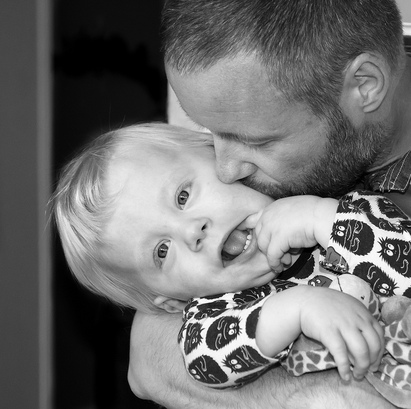|
Welcome! Don't want to take the time and cognitive skill to read Debunking Adoption Myths? (Me neither!) Now you've got the option to put me in your ears! I was invited to speak with Kelly Ellison on her podcast, Your adoption Coach, to discuss the myths of adoption.
0 Comments
Join a small group of women in discussion about the impact of infertility. Open to women on any part of the fertility journey including, fertility treatment or third-party reproduction and those moving towards adoption. Led by Whitney Barrell, LCSW therapist, with both personal and clinical expertise in infertility counseling.
When: Wednesdays March 18th-April 22nd 2015 (6 week group) 8:00-9:00 pm Where: Whitney Barrell’s Office 1308s. 1700e. #209 SLC, Utah 84108 Why: Because it feels good to be in a group of women who “get” what you are dealing with. Investment: $120 ***Feel free to call with questions about the group, or to see if it would be a good fit for you. You are in for a treat. Angela Tucker, a blogger, educator and speaker on white privilege, transracial adoption and race relations interviews two young adoptees about their experience with bullies, questions about their "real moms" and why why adoption is happy and sad. A subject near and dear to my heart, and largely misunderstood. First featured on KSL, read on to have your myths debunked--or if you are an adoptive parent, read on to feel some validation about the experience you know so well.
Adoption is mysterious to many of us; we’ve relied on Lifetime movies and anecdotes of the most rare situations in adoption to define it. As a result, there are many myths that swirl around adoption and, as always, the truth is somewhere in the middle. The information that follows is applicable to domestic and foster care adoptions, rather than international adoption. The birth mother/father can show up at any time and take the child. False. Once the adoption is finalized, the child’s adoptive parents are recognized by law. Post-adoption revocation is very rare, but these cases do gain publicity, which further perpetuates the myth. According to Utah law, the birthfather can sign relinquishment papers at any time, including before the birth of the child. The birthmother may sign relinquishments 24 hours after the birth of the child. Most ethical adoptions are agreed on by birth parents who have made a very sacred decision that they feel is in the best interest of their child. Birth parents are troubled teens and not to be trusted. False, false, false. On average, birth parents are in their 20s. Typically, birth parents choose adoption because they don’t have the means — financially, emotionally or otherwise — to parent the child. This factor doesn’t make a person dangerous or untrustworthy. Consider the amount of trust a birth parent gives an adoptive couple in order to choose them to raise their child. Open adoption (where the adoptee has identifying information about their birth family, and the birth parents choose adoptive parents) is emotionally harmful to the child. False. Open adoption takes away the mystery. When adoptive parents are able to share information about the child’s birth parents and their history, the children understand their beginnings and they understand why a placement decision was made. According to a study completed by the Minnesota/Texas Research Project, birthmothers involved in open adoptions had lower levels of adoption-related grief and loss than compared with those involved in a closed adoption. The study points out "adopted adolescents was no different in levels of adjustment from the national norms. Level of openness by itself was not a major predictor of adjustment outcomes at Wave 2. However, relationship qualities, such as collaboration in relationships and perceived compatibility, were predictive of adjustment across openness levels." Open adoption is like co-parenting. False. Birth and adoptive parents do not share custody. Adoption outlines distinct roles. Open adoption allows for the child to have an ongoing relationship (of some level) with birth parents. Some birth parents report having an aunt/uncle-like relationship with the child. Same-sex parents are not capable of providing a healthy environment for a child. False. Years of research by the Donaldson Adoption Institute has proven that children parented by same-sex or heterosexual couples have the same outcomes, happy and healthy. The racial background of most children in foster care is that of a minority. False. According to the most recentKids Count data, 46 percent of foster children are white, 26 percent are black, 21 percent are Hispanic and the remaining 9 percent are multiracial. Adoption is born of loss. True. Adoption is sometimes the best-case scenario for the birth parents, who aren’t ready to parent; the adoptive parents, who have sometimes been waiting many years to parent; and the child, who is provided a safe, stable home. Despite this, adoption occurs because of a loss — a child's loss of biological parents and the loss of connection to their history. As an adoption community we don’t do anyone any favors by glossing over this fact. Adoption is expensive. True and False. Adoption from foster care can cost little to nothing. Information from the Child Welfare Information Gateway cites domestic adoptions can range from $5,000 to $30,000, and international adoption can cost $15,000 to $30,000. These fees are paid to social workers, attorneys and a small amount (as determined by each state) can be used for birth parent expenses such as rent, maternity clothes, etc. Birthparents are not paid for the adoption. Adoptive parents must be “perfect” to pass the home study. False. Adoptive parents must prove that they can provide financially and emotionally for the child. They are asked about their relationships with family and spouse, employment, plans for when the child arrives and understanding of adoption. Most adoptive parents pass the home study process. Waiting to tell my child he or she was adopted until they can understand is better for them. False. History has been a guide for us in this domain. Historically, adoptions were closed. Because of this, it was easier (and expected) for adoptive parents not share information about their child's origins at all — or if so, later in life. Due to the research on open adoption, we now know that children who are provided information about their birth family early on fare better in the long run emotionally. Same-sex parents are not capable of providing a healthy environment for a child. False. Years of research by the Donaldson Adoption Institute has proven that children parented by same-sex or heterosexual couples have the same outcomes, happy and healthy. If I don’t talk to my child about their racial identity (if it's different from my own) then it won’t be an issue. False. Children adopted transracially need special attention in order to achieve positive formation of their racial identity. Again, the Donaldson Adoption Institute has found “positive racial/ethnic identity development is most effectively facilitated by 'lived' experiences such as travel to native country, attending racially diverse schools, and having role models of their own race/ethnicity.” Adoption has always been a way to build families, although in the past two decades, our understanding of best practices for all members of the triad has increased. As this understanding shifts, so does public misunderstanding. Adoption stories and experiences are as diverse as they come, because an adoption experience is a human experience.
|
Archives
March 2024
Categories
All
|


 RSS Feed
RSS Feed